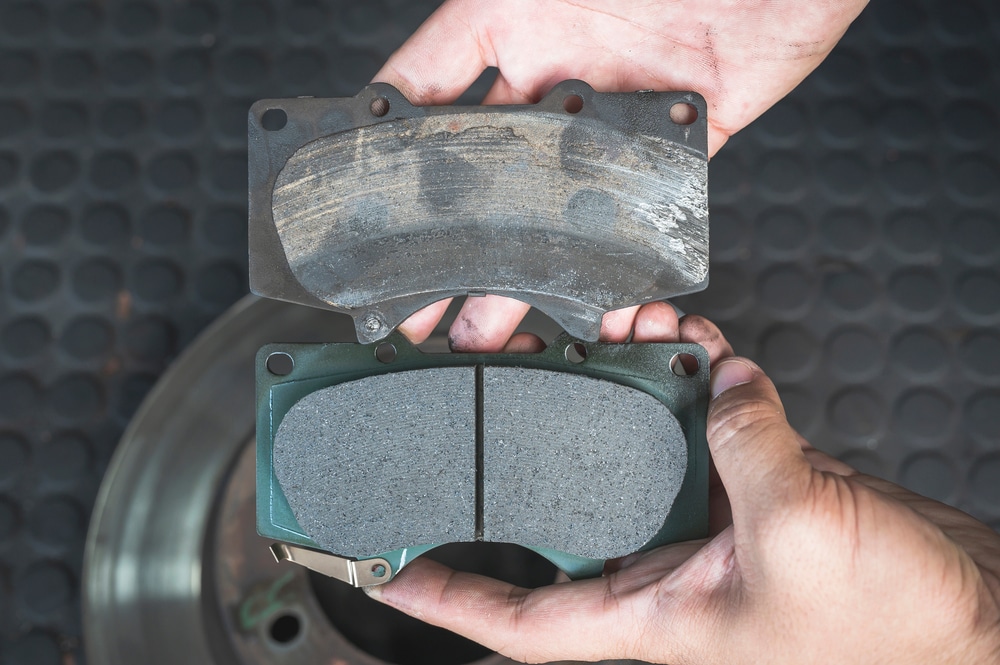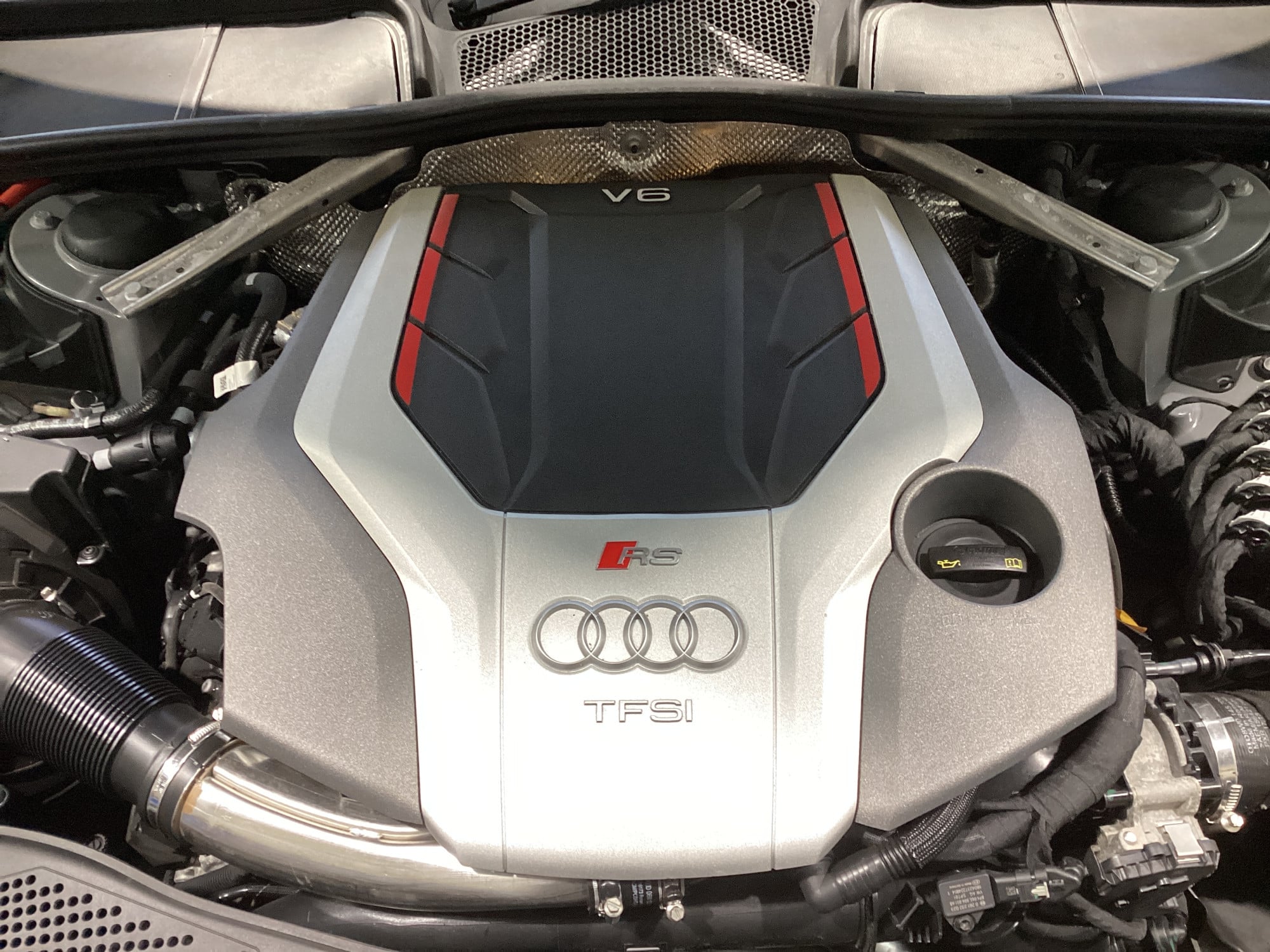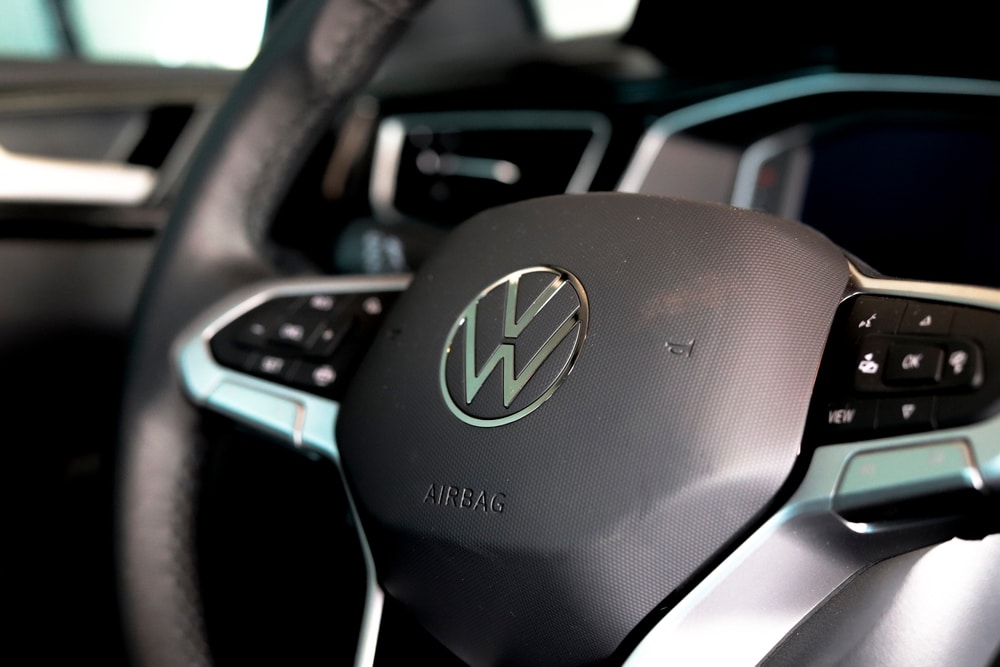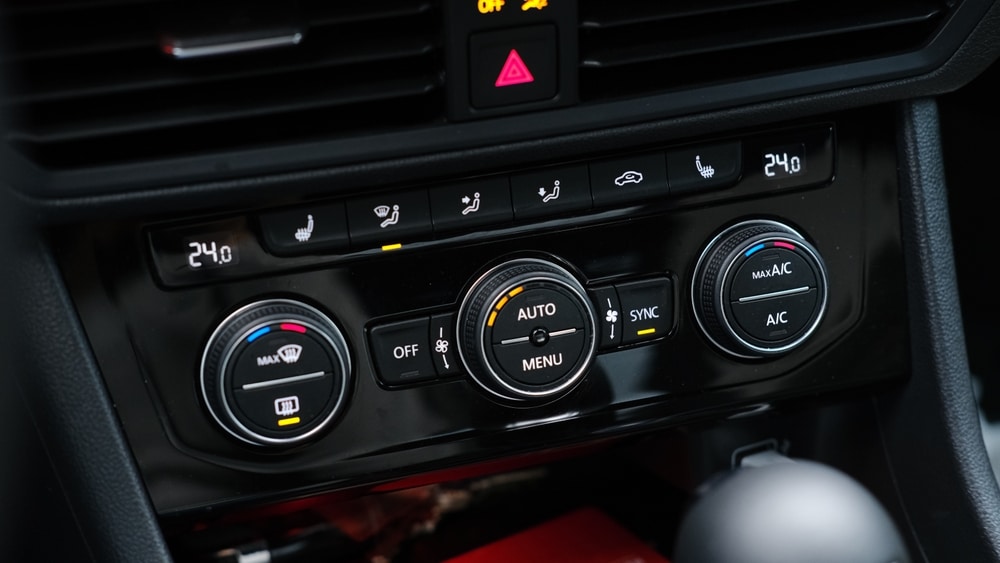Brake Pads
Brake pads are among the most heavily used and safety-critical parts of your vehicle, but many drivers in Milton Keynes don’t think about them until there’s a warning light, a strange noise, or worse, a noticeable drop in braking power.
We’re here to change that.
We’ve carried out countless brake pad inspections and replacements at Quality Car Service in Milton Keynes. We’ve seen the full spectrum from everyday wear to seriously worn pads that have damaged discs and callipers. This guide draws on our hands-on experience to explain how brake pads work, why they matter, and what to watch for—so you can act before minor wear becomes a costly repair.
If you’re driving in or around Milton Keynes and want trusted, local advice, you’re in the right place.
Let’s start with the basics: what exactly do brake pads do?
So, What Do Brake Pads Actually Do?
Let’s keep it simple, brake pads are your car’s first line of defence when it comes to bringing you to a safe stop. Located inside the brake calliper, they’re the components that press against the brake discs every time you apply the brakes. (It’s worth noting: some vehicles use drum brakes with shoes instead of pads and discs.)
These compact blocks of engineered friction material do a big job. When you press the brake pedal, hydraulic pressure forces the pads onto the rotating brake disc, creating the friction needed to slow your car down. That friction also generates a significant amount of heat. Quality pads are built to handle and disperse this heat effectively, but they do gradually wear out.
Every time you brake, a small layer of the pad’s friction material wears away. That’s how they’re designed to function; it’s not a flaw. But over time, that gradual wear adds up. Pads that are too thin can’t provide reliable stopping power, and if left too long, they can begin to damage other key components, such as the discs. That’s when a straightforward brake pad change becomes a bigger, more expensive repair.
At Quality Car Service, we check your brake pads during every service. We measure their thickness and let you know exactly when action is needed, because there’s no room for guesswork when it comes to your safety.
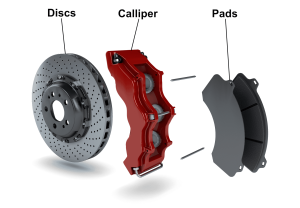
Brake Pads Types
While every brake pad is built to do the same essential job, the materials and performance vary widely, and for good reason. The type of pad your car requires isn’t about preference, but about matching the pad to the system it was designed for.
At Quality Car Service, we only install genuine parts that meet the manufacturer’s original specification. Your car’s braking system is finely tuned to work with a specific type of brake pad, and using anything else is a risk we won’t take.
It’s still useful to know the main types out there. Most brake pads fall into one of these three categories:
- Organic (NAO) pads: Made from fibres like aramid, rubber, and other organic materials. These pads tend to be quieter and smoother but wear down quicker. They’re best suited to lighter use and lower braking temperature ranges.
- Semi-metallic pads: Contain a mix of metal fibres such as copper or steel. These deliver stronger braking power and better heat resistance, but can be noisier, harder on discs, and produce more dust.
- Ceramic pads: Built with ceramic compounds and copper fibres, these are highly effective at handling heat and generate minimal dust. You’ll often find them in performance or high-end vehicles, but they typically cost more.
It may seem like one option is superior, but brake systems don’t work like that. The pads, discs, and callipers are engineered to operate together. If one part doesn’t match, the whole system can be affected, leading to noise, uneven wear, or worse, reduced braking efficiency.
That’s why at Quality Car Service, every brake pad replacement is matched precisely to your vehicle’s requirements.
What Causes Brake Pads to Wear Out Faster?
At Quality Car Service, we regularly inspect vehicles whose brake pads have worn at very different rates, and the reasons aren’t always obvious. These are the main factors that influence how quickly your pads wear down:
- Your driving environment
Regular stop-start traffic, hilly terrain, towing, and repeated short trips all lead to more frequent braking. That builds up heat and friction, which naturally speeds up how quickly your brake pads wear.
- Calliper performance
When brake callipers aren’t functioning correctly, the pads might not fully disengage after braking. This results in continuous light pressure on the brake discs, causing uneven or excessive wear, even when you’re not using the brakes.
- Condition of the discs
If the discs are pitted, warped, or affected by corrosion, the new pads won’t contact the surface evenly. This impacts stopping power and creates uneven pad wear, even if the pads themselves are good quality.
- Incompatible brake pads fitted
Brake pads that don’t match the system’s design can reduce the balance and braking effectiveness. That’s why every pad we install is chosen specifically to meet your vehicle’s requirements.
- Corrosion and contaminants
Your braking system is exposed to water, grime, and road debris. Over time, dirt and moisture can collect around the pad and cause corrosion, especially between the pad surface and its backing plate. In serious cases, this can make the friction material separate.
At Quality Car Service, we don’t just assess the pads themselves. Our technicians inspect the full braking system to catch these issues early. Dealing with abnormal wear now could mean avoiding a larger repair bill later on, and keeping your brakes working exactly as they should when you need them most.
How to Tell If Your Brake Pads Need Replacing
Brake pads don’t usually fail without giving you fair warning. Recognising the early signs can help keep you safer on the roads around Milton Keynes and Milton Keynes, and save you from bigger problems and bills down the line.
Here’s what to watch and listen for:
- High-pitched squealing when braking
Many brake pads have a built-in wear indicator—a slim metal tab that produces a sharp squeal when the pad material wears down. If you hear it, don’t put it off. It’s alerting you that your brake pads need attention now.
- Grinding sounds
A loud, abrasive grinding noise when applying the brakes could mean the pad material has completely worn away, and the metal backing plate is in direct contact with the disc. This is dangerous and needs urgent attention.
- Brake warning light on your dashboard
Some cars are fitted with electronic wear sensors. If the brake warning light appears, it usually means your pads are nearing their minimum thickness. Don’t ignore it, it’s a direct signal to book a brake check right away,
Brakes are a system; if one part’s not working, the whole setup can be compromised. That’s why we always recommend regular servicing and thorough brake inspections. If something doesn’t feel right, or you’ve noticed one of these signs, call Quality Car Service in Milton Keynes. We’ll carry out a full inspection and give you a clear, honest assessment of what’s needed.
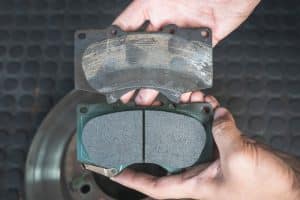
Delaying a Brake Pad Change? Here’s What Can Happen
It often starts with a dashboard light you mean to “get looked at soon”, but when it comes to brake pad replacement, leaving it too long can put more than your wallet at risk.
Here’s the issue: brake pads are designed to wear gradually. But once they’re close to the end of their lifespan, the rate of wear increases. If they’re not replaced in time, the friction material disappears entirely, and that’s when the metal backing starts to press against the brake discs.
At that point, you’re not just looking at a brake pad change. You could be facing new discs as well. And that’s a much more expensive repair you could have easily avoided.
But cost isn’t the only concern. Severely worn pads reduce your ability to stop effectively and put extra strain on the rest of the braking system. Leave them too long, and you risk damaging the callipers, overheating the brake fluid, or causing wear patterns that affect how your vehicle behaves during an emergency stop.
At Quality Car Service, we’ve seen cases where a simple brake pad replacement turned into a more serious job simply because it wasn’t dealt with early. If your brakes are making noises, if the warning light’s on, or if it’s just been a while since your last check, give us a call. A prompt inspection now could save you hundreds and ensure your car stops exactly when it needs to.
Expert Brake Pad Replacement in Milton Keynes
Brake pads may be small in size, but their role in your safety couldn’t be more significant. That’s why regular servicing is essential, and why it’s important to have an experienced team you can trust to get the job right.
At Quality Car Service, we specialise in precision brake pad replacement using only genuine or OEM*-approved parts. Every fitting is carried out to the vehicle manufacturer’s specifications, ensuring your braking system performs exactly as it should, without main dealer pricing.
Whether you’re local to Bletchley, commuting from Leighton Buzzard, or driving in from the wider Milton Keynes area, you’ll get honest advice, transparent pricing, and high-quality work from a team that takes your safety seriously.
Booking your service or brake check is the simplest way to stay ahead of wear and avoid more serious (and costly) problems down the line. If something doesn’t feel quite right, or it’s been a while since your last brake inspection, give us a ring today.
At Quality Car Service, your safety is non-negotiable. Call us now on 01908 376555 to book your appointment.
Call Now 01908 376555Save on Servicing
*OEM stands for Original Equipment Manufacturer. When it comes to vehicle parts, this means the parts are made by the same company that produced the original parts for the vehicle manufacturer
